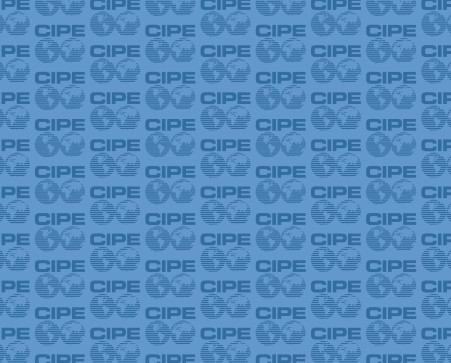
Pro-democracy reformers and activists are among the most driven and courageous people in the world. Speaking out against abuses committed by authoritarian governments often brings the risk of punishment, and meaningfully engaging on policy issues even with democratic governments takes dedication, mobilization, and discipline.
Civil society is a key conduit between citizens and their governments through which such engagement should happen. Yet, in a troubling global trend, we are witnessing the shrinking of civic space, with a number of countries from Ethiopia to Russia having passed restrictive anti-NGO legislation.
Especially in such difficult environments, human rights defenders and democracy advocates more than anything need to know that they are not alone, that the ideals they fight for are universal, and that they are a part of an international community. That is exactly what the Warsaw Dialogue for Democracy helps to accomplish.
Now in its third edition, the Dialogue, which took place October 23-25 at the Natolin Campus of the College of Europe in Warsaw, is an international gathering devoted to democracy and civil society, bringing together representatives of civil society, human rights defenders and activists from Africa and the Middle East, Asia, the Americas and Eastern Europe. The Dialogue is a forum for the exchange of good practices and expertise in the evolution of democratic systems as well as a place to share success stories and challenges of democratic transitions.
This year’s event focused on the diminishing space for civil society globally, under the theme Keeping Society Civil. Securing Space for NGOs. It included practical workshops on topics such as making non-violent resistance effective or conducting advocacy for human rights, as well as plenary sessions with distinguished panelists. The opening panel featured Poland’s Foreign Minister Grzegorz Schetyna, Speaker of the Polish Senate Bogdan Borusewicz, Cuban dissident blogger Yoani Sanchez, and Executive Director of the European Endowment for Democracy, Jerzy Pomianowski.
Minister Schetyna referred to lessons from Poland’s transition in his remarks:
“The necessity of supporting civil society and enhancing civic dimension is the main theme of the conference. Free civil society is the key factor of democracy. As it is proved by Polish example – democratic transformation of ’80 and ’90 wouldn’t have been possible without the involvement of the Solidarity movement.”
He also emphasized the vital link between political and economic pluralism:
“Today, our economic success is possible thanks to a vibrant civil society sector which motivates for further actions. It is true that sometimes civil society is a difficult partner but it is also true that they make our reality more transparent and democratic.”
For over 30 years CIPE has been supporting democratic values and private sector reformers around the world. It was a pleasure and a privilege for me to be at the Warsaw Dialogue and meet so many inspiring people there. The spirit of Solidarity – or as the leading scholar in democracy studies, Larry Diamond, would put it the Spirit of Democracy – clearly bought the participants together and propels them to continue their important work that CIPE and other international organizations support.
Anna Nadgrodkiewicz is Director of Multiregional Programs at CIPE.
Published Date: October 29, 2014